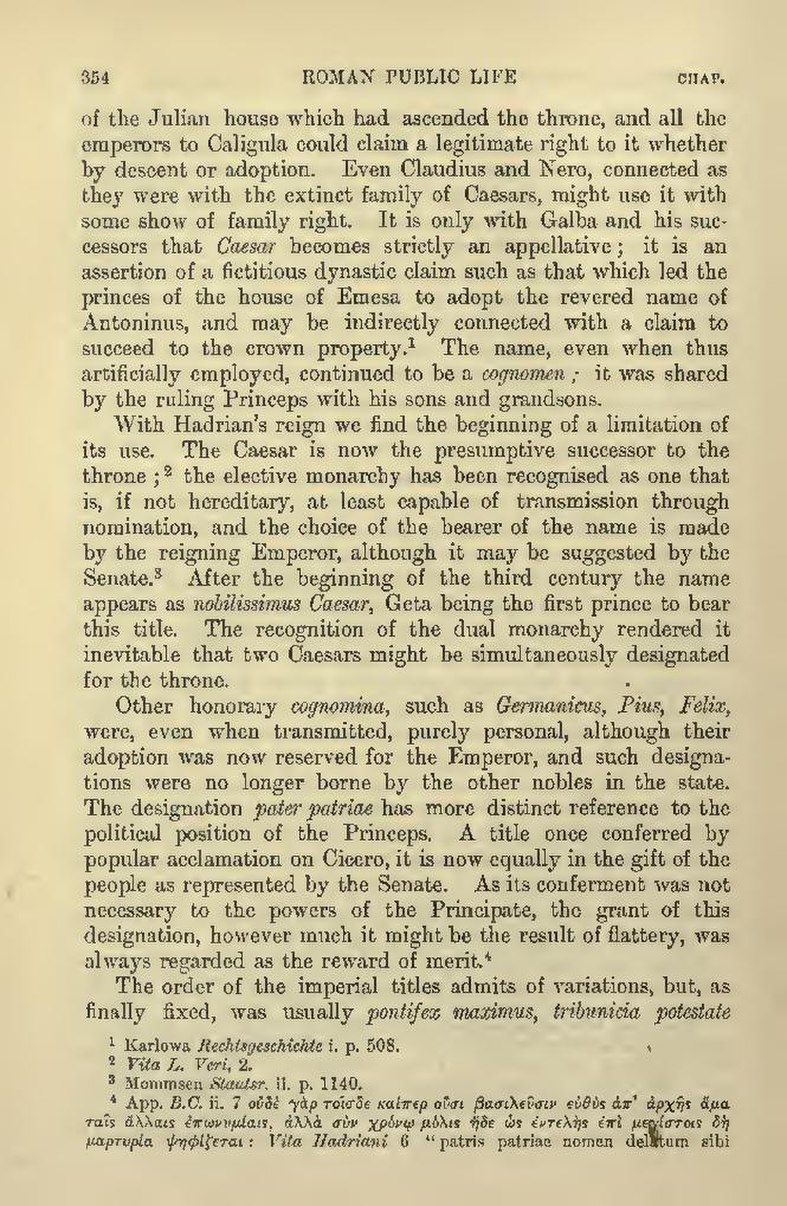of the Julian house which had ascended the throne, and all the emperors to Caligula could claim a legitimate right to it whether by descent or adoption. Even Claudius and Nero, connected as they were with the extinct family of Caesars, might use it with some show of family right. It is only with Galba and his successors that Caesar becomes strictly an appellative; it is an assertion of a fictitious dynastic claim such as that which led the princes of the house of Emesa to adopt the revered name of Antoninus, and may be indirectly connected with a claim to succeed to the crown property.[1] The name, even when thus artificially employed, continued to be a cognomen; it was shared by the ruling Princeps with his sons and grandsons. With Hadrian's reign we find the beginning of a limitation of its use. The Caesar is now the presumptive successor to the throne;[2] the elective monarchy has been recognised as one that is, if not hereditary, at least capable of transmission through nomination, and the choice of the bearer of the name is made by the reigning Emperor, although it may be suggested by the Senate.[3] After the beginning of the third century the name appears as nobilissimus Caesar, Geta being the first prince to bear this title. The recognition of the dual monarchy rendered it inevitable that two Caesars might be simultaneously designated for the throne. Other honorary cognomina, such as Germanicus, Pius, Felix, were, even when transmitted, purely personal, although their adoption was now reserved for the Emperor, and such designations were no longer borne by the other nobles in the state. The designation pater patriae has more distinct reference to the political position of the Princeps. A title once conferred by popular acclamation on Cicero, it is now equally in the gift of the people as represented by the Senate. As its conferment was not necessary to the powers of the Principate, the grant of this designation, however much it might be the result of flattery, was always regarded as the reward of merit.[4] The order of the imperial titles admits of variations, but, as finally fixed, was usually pontifex maximus, tribunicia potestate: Vita Hadriani 6 "patris patriae nomen delatum sibi]*
